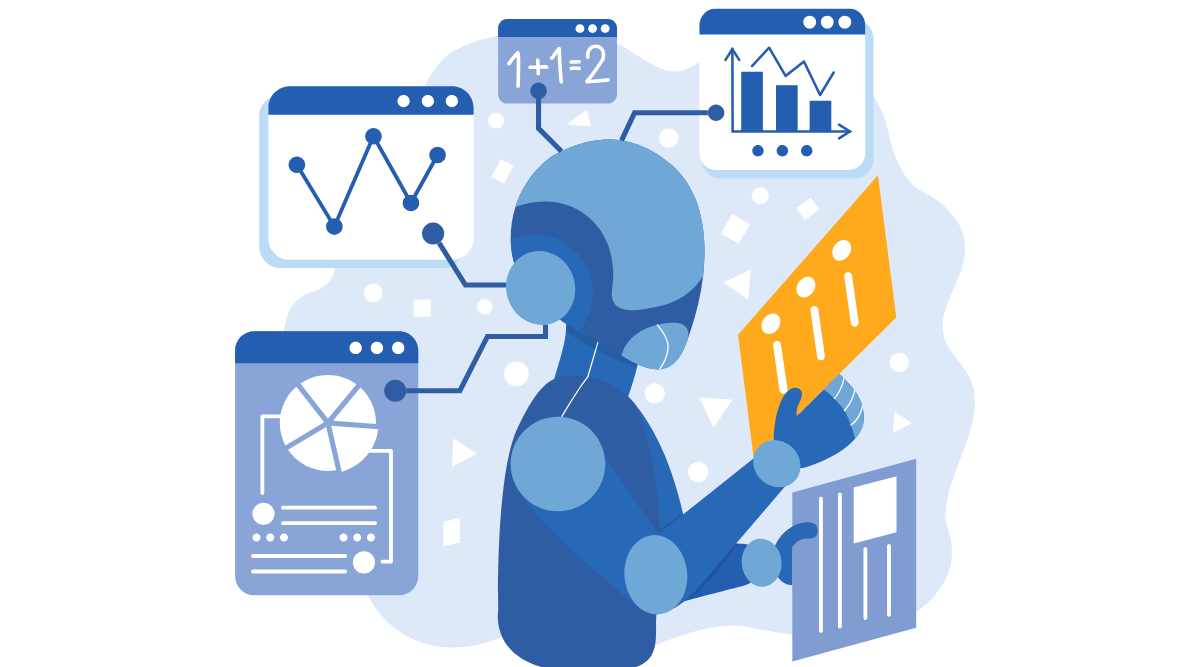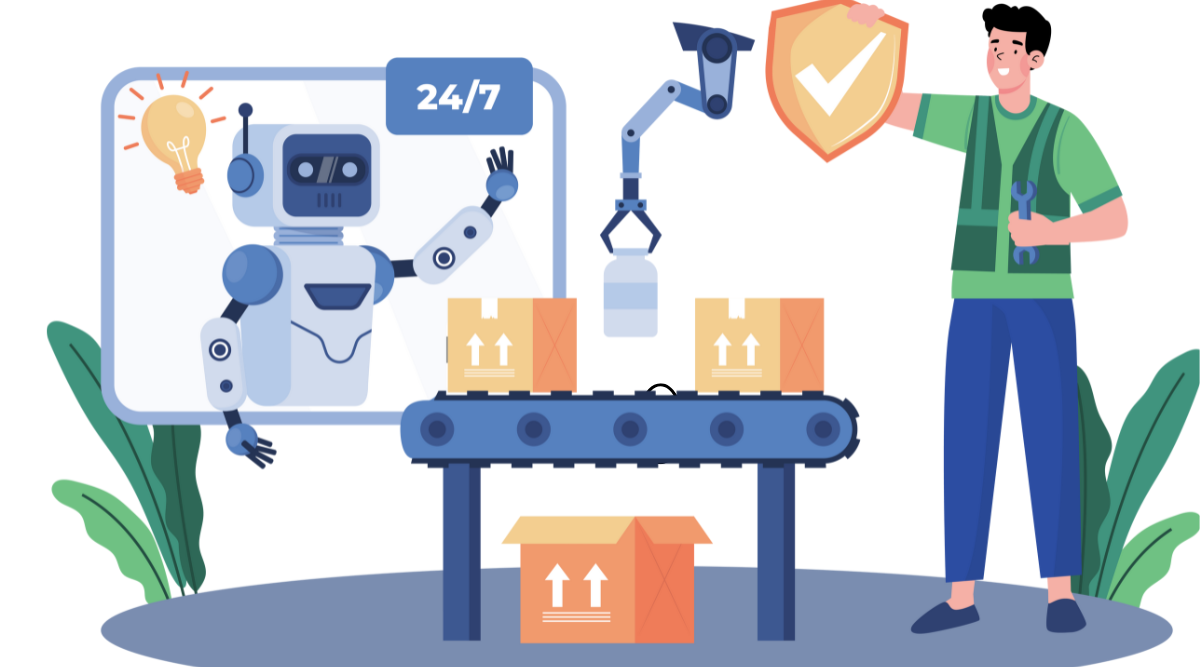Accelerating Commercial Real Estate Deals with AI SDRs
Explore how AI SDRs expedite commercial real estate transactions efficiently and effectively.

In the competitive and intricate world of commercial real estate, speed and efficiency are everything. Deals hinge not only on finding the right properties but also on timely communication with potential clients. The emergence of AI-powered Sales Development Representatives (SDRs) is reshaping this landscape. These advanced tools are redefining how professionals manage leads, qualify prospects, and close transactions. If you're navigating the world of commercial real estate, understanding AI SDRs could provide a significant edge.
The Role of AI SDRs in Commercial Real Estate
Understanding the Role of Sales Development Representatives
Sales Development Representatives play a pivotal part in the sales process by bridging the gap between marketing and sales teams. They are responsible for identifying and qualifying potential leads, engaging with them, and nurturing these prospects until they are ready for direct sales pitches. In the commercial real estate sector, SDRs must understand market trends, property values, and client needs in detail.
Traditionally, SDR roles entail a substantial degree of manual work, from making calls and sending emails to logging interactions and updating CRM systems. This traditional approach can be time-consuming and often leaves little time for other important activities, such as engaging in meaningful client conversations and deeper market analysis.
How AI Enhancements Transform SDR Capabilities in Real Estate
The introduction of AI into the realm of SDRs has brought a remarkable enhancement in capabilities. An AI SDR can manage data at a scale and speed unimaginable for humans and provide insights that might otherwise go unnoticed. This transformation allows real estate professionals to offload routine tasks like data entry and preliminary client interactions to AI systems, freeing up human SDRs for more complex and nuanced client engagements.
AI can quickly analyze vast amounts of market data, predict trends, and even create initial contact lists by identifying high-potential leads. The automation of these processes not only increases efficiency but also improves the accuracy of lead targeting, ensuring that SDRs focus their efforts on the most promising opportunities.
Key Differences: Traditional SDRs vs. AI-enabled SDRs
| Aspect | Traditional SDRs | AI-enabled SDRs |
|---|---|---|
| Lead Qualification | Manual research and analysis | Automated data analysis |
| Response Time | Often delayed due to workload | Real-time communication |
| Scalability | Limited by team size | Large-scale lead processing |
| Data Management | Rudimentary, manual entry | Advanced, automated systems |
| Client Engagement | Scripted, repetitive campaigns | Personalized, data-driven interactions |
AI-enabled SDRs excel in areas like rapid lead qualification and scalable data management. While traditional SDRs rely heavily on personal knowledge and intuition, AI SDRs make data-driven decisions, helping businesses to reach a broader audience with greater precision.
Benefits of AI SDRs for Faster Real Estate Transactions
Reducing Time to Close: Impact on Transaction Speed
AI SDRs significantly reduce the time it takes to move from initial contact to closed transaction. By automating routine administrative tasks and using AI to provide market insights, they enable quicker decision-making processes. This quickened pace means that transactions are not only initiated faster but can often be closed more rapidly, giving real estate agencies an edge in competitive markets.
Cost Efficiency: Lowering Expenses with AI Assistance
One of the leading advantages of using AI SDRs is cost efficiency. By minimizing the need for manual labor in repetitive tasks and optimizing sales processes, companies reduce operational costs. For real estate firms, this means reallocating resources to more strategic needs, such as property investments or client relationship management, without sacrificing outreach quality.
Improving Lead Qualification and Follow-up Processes
AI excels in refining lead qualification processes by parsing potential buyer signals from various data inputs like online behavior, past inquiries, and demographic data. With sophisticated algorithms, AI SDRs prioritize high-leverage leads and ensure consistent and timely follow-ups. This improved accuracy in lead qualification enhances conversion rates and maintains a healthy pipeline of prospective deals, allowing real estate agents to focus on converting ready-to-buy prospects.
Ways AI SDRs Enhance Sales Processes in Real Estate
Automating Routine Tasks to Focus on High-Value Activities
AI SDRs can automate a multitude of routine tasks such as scheduling meetings, sending introductory emails, and updating CRM entries. This automation allows human SDRs to focus on more value-added activities, such as negotiating complex deals or developing deep client relationships, which require more intuition and personal touch.
Enhancing Customer Engagement through Personalized Interactions
Leveraging AI’s ability to analyze interaction history and preferences, AI SDRs tailor communications to the individual preferences of potential clients. This personalization, whether in email campaigns or direct messages, leads to more meaningful interactions and better client engagement. Clients appreciate relevant content, which builds trust and fosters long-term relationships.
Data-Driven Decision Making: Leveraging AI Analytics
AI SDRs offer robust analytics capabilities, providing sales teams with insights into market trends, client behavior, and campaign performances. By harnessing these analytics, real estate firms can make more informed decisions, optimize their strategies, and align their offerings with market demands. This data-driven approach ensures that organizations remain competitive and responsive to the ever-changing market environment.
By integrating AI SDRs, commercial real estate businesses can enhance their effectiveness, streamline operations, and achieve faster transaction times, all while maintaining or increasing profit margins. In an industry where timing and precision are essential, AI SDRs empower teams with the tools they need to succeed.
Case Studies: Success Stories of AI SDR Implementation
Success Story: Increasing Deal Closure Rates
One prime example of AI SDR success in commercial real estate involves a large property management firm based in the U.S. Looking to enhance its sales funnel, the firm integrated AI SDRs from floworks.ai to automate the initial phases of lead engagement and qualification. By doing so, they significantly increased their deal closure rate. The AI SDRs were adept at analyzing market trends and client data, automating follow-ups, and initiating timely conversations with potential leads. The result was a 30% increase in closed deals within the first six months of implementation, highlighting the efficacy of AI in refining sales strategies.

Case Study: Optimizing Client Communication in Commercial Property Sales
A real estate company specializing in commercial properties found itself struggling with personalized client communication due to high client volumes. By adopting floworks.ai's AI SDR solution, the company optimized its client outreach. The AI SDRs generated personalized emails and messages tailored to each lead's specific interests and needs. As a result, the company saw a substantial improvement in client engagement metrics, with a 40% increase in response rates and a notable improvement in client satisfaction scores.

Real-world Example: Reduction in Commercial Listing Turnaround Time
Another noteworthy implementation was at a nationwide commercial real estate service firm. Previously, they experienced delayed listing turnaround times due to the manual processes involved in data entry and client communication. Post integration of AI SDRs, the firm noticed a substantial reduction in these delays. The AI handled repetitive data tasks and pre-emptively engaged with potential buyers or renters as listings became available. This proactive approach reduced the average turnaround time by 25%, allowing the company to maintain a competitive edge in a fast-moving market.

Choosing the Right AI SDR Solutions for Your Needs
Considerations for Integrating AI SDRs in Your Sales Strategy
When considering the integration of AI SDRs into your commercial real estate strategy, several factors should guide your decision:
- Scalability Needs: Assess whether the AI SDR solution can grow with your business. Determine if it can handle a larger volume of listings and leads as your operations expand.
- Integration Ease: Ensure that the AI SDR can seamlessly integrate with your existing CRM and other real estate tools to avoid disruptions.
- Customization Capabilities: Check for the ability to customize AI responses to match your brand’s voice and customer interaction style.
- User-Friendly Interface: The tool should be easy to navigate for your team, minimizing the need for extensive training.
- Data Security: Evaluating the security measures in place to protect sensitive client and transaction data is crucial.
Comparing Top AI SDR Tools Available in the Market
When selecting an AI SDR tool, it's essential to compare various solutions to identify one that aligns with your strategic goals. Some reputable solutions in the market include:
- floworks.ai: Known for its robust data analytics capabilities and seamless CRM integration, floworks.ai offers a tailored approach to commercial real estate sales.
- Conversica: Offers AI assistants that engage leads with personalized communications, focusing on enhancing engagement metrics and lead conversion rates.
- Drift AI: Known for its conversational marketing cloud, Drift provides solutions that integrate chatbots with marketing and sales strategies for real-time interaction.
| Feature | floworks.ai | Conversica | Drift AI |
|---|---|---|---|
| Market Focus | Commercial real estate | General lead engagement | Conversational AI |
| CRM Integration | Seamless | Compatible with major CRMs | Native integrations |
| Customization | High | Medium | High |
| Data Security | Advanced encryption | Robust | Secure |
Long-term Impact: Preparing Your Team for AI Integration
Integrating AI SDRs represents a cultural and operational shift within an organization. Preparing your team for this integration is critical to success.
- Training Programs: Implement comprehensive training to help staff understand the AI system’s functionalities and its integration into daily operations.
- Role Re-definition: Redefine roles to leverage the unique strengths of both AI and human agents. Empower employees to focus on strategic initiatives and personal client engagements.
- Continuous Learning: Foster an environment of continuous learning where teams regularly update their skills to align with AI advancements.
- Feedback and Iteration: Use feedback loops to refine AI processes and ensure that both the AI system and your team are improving and adapting.
Implementing these strategies will enable a smoother transition and help your organization reap the benefits of AI SDR solutions, fostering a more efficient and effective commercial real estate operation.
Conclusion
The integration of AI-powered Sales Development Representatives into the world of commercial real estate signifies a pivotal shift towards optimized transaction processes and client management. Through advanced data analysis, AI SDRs streamline and automate fundamental tasks, empower real estate teams to focus on high-value activities, and enhance client interactions with personalized experiences. These advances are not just about speeding up transactions; they fundamentally reshape how real estate agencies operate, reducing costs and improving accuracy in lead generation and follow-up.
Floworks.ai understands the intricacies of the commercial real estate market and strives to provide AI solutions that meet the unique needs of this industry. By harnessing AI SDR technology, real estate professionals can better navigate the complexities of market dynamics and client expectations, positioning themselves for success in an ever-evolving landscape. Embracing AI SDRs is not just a step forward; it’s a transformative journey toward more effective and efficient real estate operations. As we look to the future, it's clear that those who adapt to and embrace these innovations will be best positioned to thrive.
Frequently Asked Questions
What is the main advantage of using AI SDRs in commercial real estate?
The primary advantage of implementing AI SDRs in commercial real estate lies in their ability to drastically reduce the manual workload that traditional SDR roles often entail. By automating routine tasks such as data entry, client follow-up, and lead qualification, AI SDRs free human teams to focus on strategic activities and direct client interactions. This not only streamlines operations but also enhances accuracy and efficiency in processing transactions, ultimately leading to quicker deal closures and improved client satisfaction.
How does AI improve lead qualification and follow-up in real estate?
AI improves lead qualification and follow-up by analyzing vast amounts of data to identify potential leads with the highest conversion probabilities. It uses algorithms to evaluate signals such as online behaviors and past interactions, ranking leads based on their readiness to purchase. This precise targeting ensures that follow-ups are timely and relevant, significantly enhancing the chances of successful conversions while maintaining a robust pipeline for sales teams to work with.
Are there any cost implications when transitioning to AI SDRs in real estate?
Transitioning to AI SDRs can entail initial setup costs, including purchasing or developing AI software and training staff to work with these new systems. However, these upfront costs are often outweighed by long-term savings. AI SDRs reduce the need for extensive manual labor, which can lead to significant reductions in operational expenses. Additionally, they enhance efficiency and can optimize resource allocation, allowing real estate firms to focus on strategic investments and client relationship building.
Can AI SDRs completely replace human sales representatives?
AI SDRs complement human sales representatives rather than replace them. While AI excels at handling data-heavy tasks quickly and accurately, human agents bring essential intuition, empathy, and relationship-building skills that machines cannot replicate. In the commercial real estate sector, successful sales often depend on nuanced negotiations and personalized client interactions, domains where human expertise remains invaluable. Therefore, AI SDRs enhance the capabilities of sales teams by allowing them to focus more on these critical interactions.
What trends should we expect in the future of AI SDRs within real estate?
In the coming years, we can anticipate further advancements in AI technologies, paving the way for more sophisticated applications in real estate. Expect enhanced predictive analytics that will provide even deeper insights into client preferences and market trends. Additionally, as AI systems continue to learn and evolve, they will likely offer more autonomous capabilities, improving real-time response and further personalizing client interactions. The future of AI SDRs in real estate is poised to become more integral to strategic decision-making, offering new opportunities for optimization and growth in the sector.


